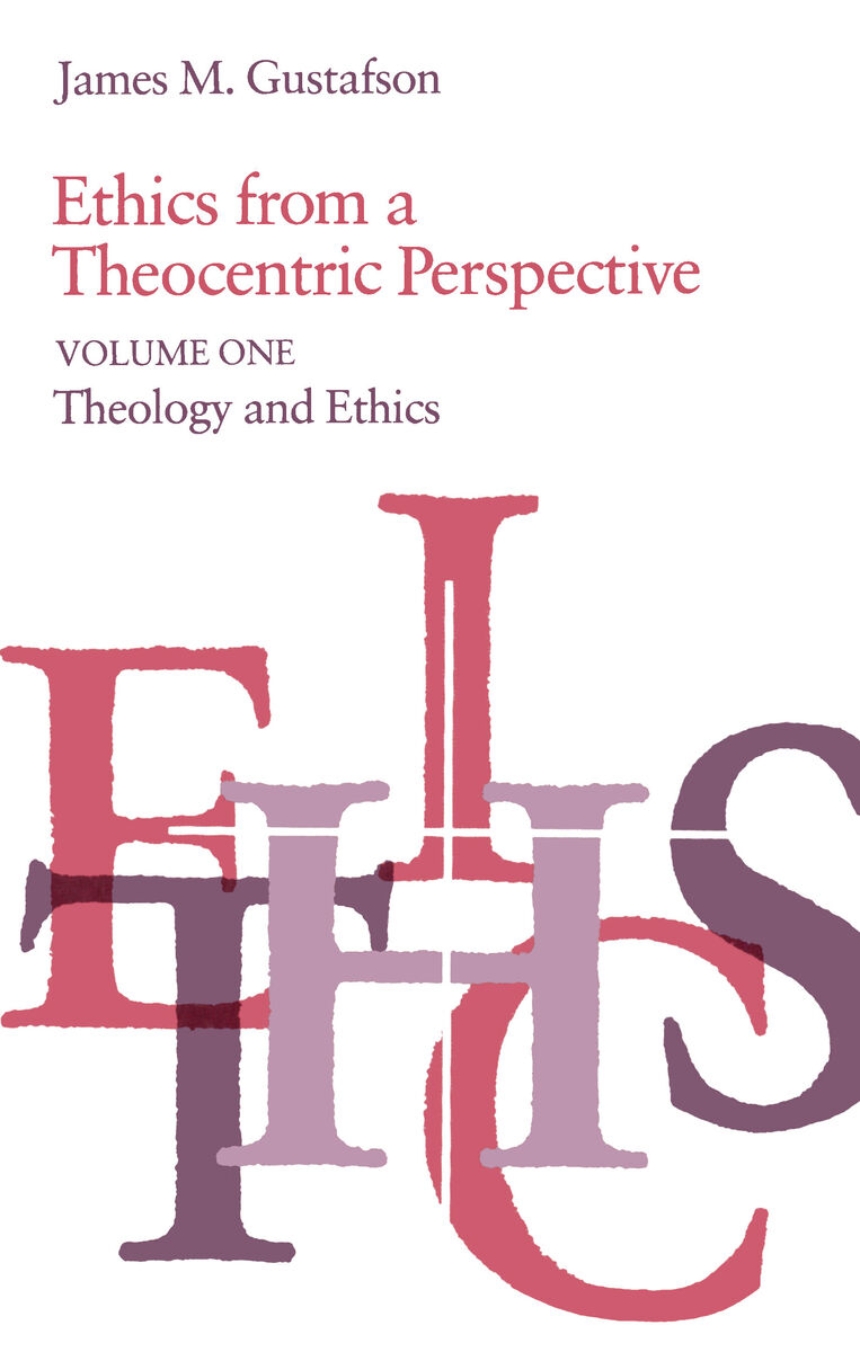Ethics from a Theocentric Perspective, Volume 1
Theology and Ethics
"Ethics from a Theocentric Perspective will surprise some, shock others, and unleash a flood of speculation about what has happened to James Gustafson. The answer quite simply is nothing has happened to Gustafson except that he has now turned his attention to developing his constructive theological position, and we should all be very glad. . . . In this, the first of two volumes, Gustafson displays his colors as a constructive theologian, and they are indeed brilliant and splendid. . . . Though Gustafson is a theologian who works in the Christian tradition, he reminds us that the God Christians worship is not merely the Christian God. For Gustafson the kind of God who is the object of the theologians’s reflection eludes or surpasses the inevitably confessional activity of Christian theological reflection. Thus Gustafson, the constructive theologian, is also Gustafson the revisionist theologian who takes as his task nothing less than challenging the anthropocentrism that he alleges characterizes mainstream Western Christian theology."—Stanley Hauerwas, Journal of Religion
Table of Contents
Preface
1. An Interpretation of Our Culture
Some Aspects of Our Culture
Some Aspects of Religion
Religious Studies
The Theological Scene
Preoccupation with Theological Method
Christian Ethics
Philosophical Ethics
Conclusions
2. Theocentric Ethics: Is It Ethics in the Traditional Sense?
The Central Reference Point: Man or God?
A Moral Pause
A Religious and Theological Pause
Conclusions
3. Convictions and Procedures: An Interlude
Convictions: The Priority of Human Experience
Convictions: Religion, "Others," and the "Other"
Procedures: Theological Tradition and Development
Concluding Reflections
4. A Preferance for the Reformed Tradition
Theology as a Way of Construing the World
The Reformed Tradition
Problematics in the Reformed Tradition
Conclusions
5. God in Relation to Man and the World
I. Religion
The Use of Terms
"Nonreligious" Experiences and Their Religious Significance
Nature
History
Culture
Society
The Self
The Religious Construal of the Affections and Their Object
II. God
God as Creator
God as Sustainer and Governor
God as Judge
God as Redeemer
The Use of Scientific Explanations in the Retrieval and Reconstruction of Theology
6. Man in Relation to God and the World
"Natural Man"
The "Human Fault"
The Correction
The Christian Religious Context
7. Moral Life in Theocentric Perspective
Index
1. An Interpretation of Our Culture
Some Aspects of Our Culture
Some Aspects of Religion
Religious Studies
The Theological Scene
Preoccupation with Theological Method
Christian Ethics
Philosophical Ethics
Conclusions
2. Theocentric Ethics: Is It Ethics in the Traditional Sense?
The Central Reference Point: Man or God?
A Moral Pause
A Religious and Theological Pause
Conclusions
3. Convictions and Procedures: An Interlude
Convictions: The Priority of Human Experience
Convictions: Religion, "Others," and the "Other"
Procedures: Theological Tradition and Development
Concluding Reflections
4. A Preferance for the Reformed Tradition
Theology as a Way of Construing the World
The Reformed Tradition
Problematics in the Reformed Tradition
Conclusions
5. God in Relation to Man and the World
I. Religion
The Use of Terms
"Nonreligious" Experiences and Their Religious Significance
Nature
History
Culture
Society
The Self
The Religious Construal of the Affections and Their Object
II. God
God as Creator
God as Sustainer and Governor
God as Judge
God as Redeemer
The Use of Scientific Explanations in the Retrieval and Reconstruction of Theology
6. Man in Relation to God and the World
"Natural Man"
The "Human Fault"
The Correction
The Christian Religious Context
7. Moral Life in Theocentric Perspective
Index
